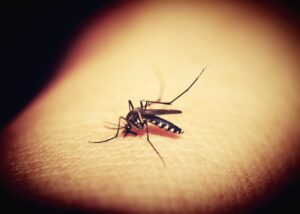Dengue fever, a mosquito-borne viral illness, can leave individuals feeling weakened and unwell. While there is no specific cure for dengue, there are steps you can take to facilitate a faster recovery and manage the symptoms effectively. Timely care and self-care strategies play a crucial role in easing the journey through dengue. In this article, we will explore practical ways to expedite your recovery from dengue fever.
1. Rest Is Paramount
One of the most crucial aspects of recovering from dengue is giving your body the rest it desperately needs. Dengue often leaves individuals feeling fatigued, and your body’s immune system requires energy to fight off the virus. Ensure you get ample sleep and avoid strenuous physical activities until you feel significantly better.
2. Stay Hydrated
Dengue fever can lead to dehydration due to high fever and vomiting. To combat this, drink plenty of fluids to maintain adequate hydration. Water, oral rehydration solutions, coconut water, and clear broths are excellent choices. Dehydration can worsen your condition and prolong your recovery, so prioritize staying hydrated.
3. Pain and Fever Management
Dengue often comes with high fever and severe headaches, which can be debilitating. Over-the-counter pain relievers like acetaminophen (paracetamol) can help reduce fever and alleviate pain. However, avoid non-steroidal anti-inflammatory drugs (NSAIDs) like ibuprofen, as they can increase the risk of bleeding associated with dengue.
4. Nutritious Diet
While your appetite may be diminished during dengue, it’s essential to provide your body with essential nutrients to support your immune system. Opt for small, nutritious meals that include fruits, vegetables, lean proteins, and whole grains. These foods can aid in your recovery and help rebuild your strength.
5. Protect Against Mosquito Bites
Even during your recovery, it’s crucial to protect yourself from further mosquito bites. Dengue is caused by the Aedes mosquito, and contracting a second infection can lead to more severe symptoms. Use mosquito nets, wear long-sleeved clothing, and apply mosquito repellent to safeguard against bites.
6. Keep Your Environment Cool
High temperatures can exacerbate dengue symptoms, leading to discomfort and increased fever. Use fans or air conditioning to maintain a cool indoor environment. Avoid prolonged exposure to heat and direct sunlight.
7. Monitor Platelet Counts
In some cases of dengue, platelet counts may drop, which can lead to bleeding. Regularly monitor your platelet levels through blood tests as advised by your healthcare provider. If your platelet count falls significantly or you experience bleeding, seek medical attention promptly.
8. Adhere to Medical Advice
If you have been prescribed medications or treatments by your healthcare provider, follow their instructions diligently. They may recommend additional tests or hospitalization if your condition worsens. Trust your healthcare provider’s expertise in managing your dengue recovery.
9. Gradual Resumption of Activities
Once your fever subsides, avoid rushing back into your regular routine. Dengue can leave you feeling weak and fatigued, so it’s important to gradually increase your activity level as your strength returns. Listen to your body and avoid strenuous activities until you feel fully recovered.
10. Emotional Support
Dengue can take both a physical and emotional toll on individuals. Seek support from friends and family members to help you cope with the psychological effects of the illness. Sharing your experiences and feelings can be a valuable part of the recovery process.
11. Be Alert for Warning Signs
While most cases of dengue resolve without complications, it’s crucial to be vigilant for warning signs of severe dengue, such as severe abdominal pain, persistent vomiting, bleeding from the nose or gums, or difficulty breathing. If you experience any of these symptoms, seek immediate medical attention.

Recovery from Dengue Isn’t Easy
In conclusion, while there is no quick fix recovery for dengue fever, a combination of rest, hydration, pain management, nutrition, and diligent medical care can facilitate a faster recovery. Dengue can vary in severity, so it’s vital to consult with a healthcare professional for a proper diagnosis and guidance on your recovery journey. With proper care and attention, you can improve your chances of a smoother and faster recovery from dengue fever.